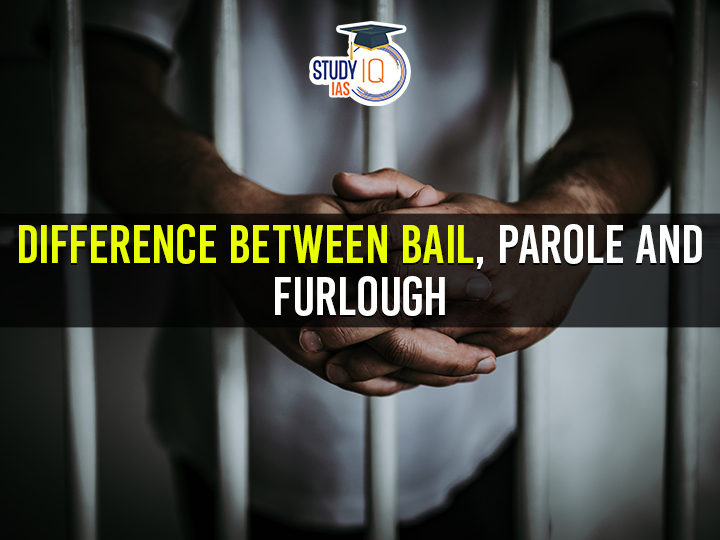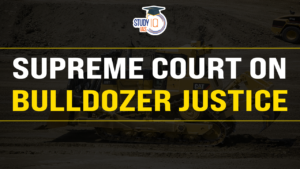Table of Contents
Context: Gurmeet Ram Rahim Singh, chief of Dera Sacha Sauda walked out of Rohtak’s Sunaria jail on a 21-day furlough.
What is furlough?
Furlough is a temporary release from prison for a specific purpose, such as attending a family funeral or visiting a sick family member. Furloughs are typically granted for a short period of time, and the inmate must return to prison at the end of the furlough. The terms of furlough are set by the prison administration. The prison administration may consider the following factors when granting a furlough:
- The reason for the furlough request
- The inmate’s behavior in prison
- The inmate’s risk of escaping
If the inmate violates the terms of their furlough, they may be punished, including being denied future furloughs.
We’re now on WhatsApp. Click to Join
Difference Between Bail, Parole and Furlough
Bail, parole, and furlough are all temporary releases from custody, but they have different purposes and conditions. Here you can check Difference Between Bail, Parole and Furlough in detail.
| Aspect | Furlough | Parole | Bail |
| Definition | Furlough is a short-term, temporary release from prison granted to convicts as a reformative measure. | Parole is a conditional release from prison before the completion of a sentence, on the promise of good behaviour. | Bail is the temporary release of an accused person awaiting trial, usually on condition of a security being given. |
| Purpose | Mainly for the prisoner to maintain family ties, and adjust to life outside prison. | To rehabilitate or reintegrate the prisoner into society, often granted for long-term inmates. | To ensure the accused’s appearance in court while allowing them to live their normal life until trial. |
| Eligibility | Generally given to convicts with good conduct and long sentences, not usually available for those convicted of serious crimes. | Usually for long-term prisoners with good conduct; not available for prisoners with serious offences like murder, rape, etc. | Available to most accused persons except in cases of serious crimes or where the accused is deemed a flight risk or a danger. |
| Duration | Short-term, usually a few days to a few weeks. | Longer than furlough, can be extended depending on circumstances. | Duration lasts until the end of the trial process or until the bail conditions are revoked or modified. |
| Granting Authority | Granted by the prison authorities. | Granted by either the prison authorities or the court, depending on the jurisdiction. | Granted by the court. |
| Conditions | Conditions may include reporting to a police station, not leaving a specified area, and returning to prison on time. | Conditions include regular reporting to police, not engaging in illegal activities, and sometimes not leaving a specified territory. | Conditions include regular court appearances, not engaging in criminal activity, and sometimes travel restrictions or house arrest. |
| Legal Nature | Furlough is a matter of prison administration and inmate’s rights under the applicable jail manual or rules. | Parole is a mix of administrative and legal decision-making, often involving both the correctional system and the judiciary. | Bail is purely a judicial process and a fundamental right under the law, subject to judicial discretion. |
What is Bail?
Bail is a pre-trial release granted to an accused person pending their trial. It is a conditional release that allows the accused person to remain free while awaiting trial, but it is not a guarantee of acquittal. The purpose of bail is to ensure that the accused person appears in court for their trial and does not pose a threat to the public.
What is Parole?
Parole is a conditional release granted to an inmate who has served a portion of their prison sentence. It is a reward for good behaviour and a way to reintegrate the inmate into society. Parolees are typically subject to supervision and must adhere to certain conditions, such as reporting to a parole officer, staying within a certain geographic area, and refraining from criminal activity.


 National Judicial Appointments Commissio...
National Judicial Appointments Commissio...
 Draft Digital Personal Data Protection R...
Draft Digital Personal Data Protection R...
 Bulldozer Justice, Issues and Justificat...
Bulldozer Justice, Issues and Justificat...





















